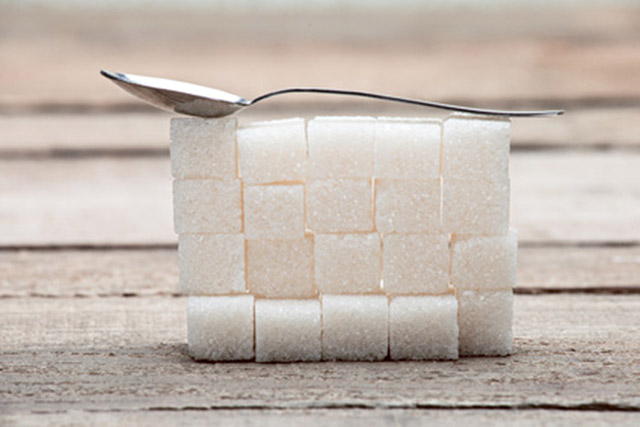Aspartame use in children’s drinks has risen dramatically, according to a report from George Washington University’s Milken Institute School of Public Health.
There has been so much controversy surrounding artificial sweeteners and Splenda is no exception.
Its slogan: “Made from sugar, so it tastes like sugar has changed” after the company was sued and became: “Just What’s Good — it’s made from sugar. It tastes like sugar. But it’s not sugar.”
Health experts have long been suspicious of the health effects of Splenda, believing that it may cause obesity and other serious problems.
We reported on a groundbreaking study last year, which showed that Splenda is linked to leukemia.
According to the new research, aspartame use in U.S. kid’s drinks has skyrocketed by 200 percent. They also report that 25 percent of kids in the U.S. consume these aspartame filled beverages.
Allison Sylvetsky, Ph.D., an assistant professor of Exercise and Nutrition Sciences at Milken Institute School of Public Health in Washington D.C., explained:
The findings are important, especially for children, because some studies suggest a link between low-calorie sweeteners and obesity, diabetes and other health issues.”
The new study is the first to take a look at low calorie sweeteners in food and beverages. It used the latest data for people in the U.S.
The following findings were discovered by the end of the study:
. Of those reporting use of LCS more than once a day, 44 percent were adults and 20 percent were children
. Seventeen percent of adults reported having a food or beverage sweetened with LCS at least three times a day
. As LCS use increased, body mass index (BMI) increased with it
. Nineteen percent of obese adults used LCS three times a day or more, compared to 13 percent of normal weight adults
. Around 70 percent of the LCS consumption took place at home, and children as young as 2 years old were also eating and drinking these products
The study showing that aspartame use in children’s drinks has risen dramatically was published in the Journal of the Academy of Nutrition and Dietetics.
Note: None of the information in our website is intended to diagnose, treat, cure or prevent any illness or disease. The content on our website is for educational purposes only.
DON’T FORGET to sign up for our weekly newsletter to get our latest articles, updates, free recipes and giveaways.
The danger of using aspartame.
Splenda suppresses thyroid function and promotes weight gain.
Huge 10 year study has linked soda to heart attack and stroke.
REFERENCES:
1. “Sucralose Administered in Feed, Beginning Prenatally through Lifespan, Induces Hematopoietic Neoplasias in Male Swiss Mice.” Taylor & Francis. N.p., n.d. Web. 11 Mar. 2016.
2. “Aspartame Use Surges in Children’s Drinks.” Mercola.com. Mercola.com, n.d. Web. 27 Jan. 2017.
3. “Consumption of Low-Calorie Sweeteners among Children and Adults in the United States.” Journal of the Academy of Nutrition and Dietetics. Journal of the Academy of Nutrition and Dietetics, n.d. Web. 26 Jan. 2017.
4. “Consumption of Low-Calorie Sweeteners Jumps by 200 Percent in U.S. Children.” GW Public Health. The George Washington University, n.d. Web. 27 Jan. 2017.

















